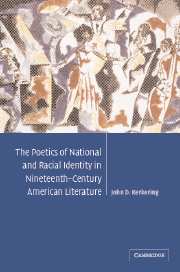Introduction: the poetics of identity
Published online by Cambridge University Press: 22 September 2009
Summary
I have wanted always to develop a way of writing that was irrevocably black. I don't have the resources of a musician but I thought that if it was truly black literature, it would not be black because I was, it would not even be black because of its subject matter. It would be something intrinsic, indigenous, something in the way it was put together – the sentences, the structure, texture and tone – so that anyone who read it would realize. I use the analogy of the music because you can range all over the world and it's still black … I don't imitate it, but I am informed by it. Sometimes I hear blues, sometimes spirituals or jazz and I've appropriated it. I've tried to reconstruct the texture of it in my writing… .
– Toni MorrisonI had an instinct that [the invitation to translate Beowulf] should not be let go. An understanding I had worked out for myself concerning my own linguistic and literary origins made me reluctant to abandon the task. I had noticed, for example, that without any conscious intent on my part certain lines in the first poem in my first book conformed to the requirements of Anglo-Saxon metrics. These lines were made up of two balancing halves, each half containing two stressed syllables – “The spade sinks into gravelly ground: / My father digging. I look down …” – and in the case of the second line there was alliteration […]
– Seamus Heaney- Type
- Chapter
- Information
- Publisher: Cambridge University PressPrint publication year: 2003



